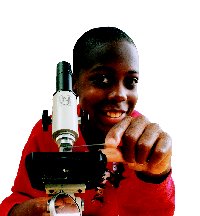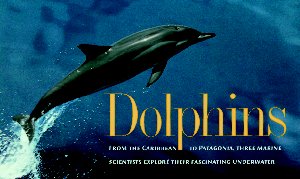
The Pittsburgh Regional Science Festival
By M.A. Boldurian
Celebrate Pittsburghís scientific creativity in a
new, weeklong event
April 1 through 9
At the dawn of a new millennium, Pittsburgh
has much to celebrate. No longer the Smoky City, Pittsburgh is paving a
scientific path to the future--as The Wall Street Journal recently proved
by naming the city 13th in the United States for advancing science
and technology. Carnegie Science Center is showcasing this latest renaissance
by highlighting the areaís scientific and technological ventures, and acknowledging
the pioneers who work in these exciting fields.
The weeklong Pittsburgh Regional Science Festival at the Science Center
features speakers, hands-on activities, interactive demonstrations, and
exhibits and presentations by local companies, foundations, academia, and
organizations. Old and new regional science activities are combined for
an entire week of events. The festival will do more than introduce the
public to the research, technology, and science occurring daily in their
own backyard. It will also be an annual, international event, attracting
people and business development to the Pittsburgh area.
-
You wonít see spewing volcano models at the 61st annual Pittsburgh
Regional Science and Engineering Fair. Nope, these 600 sixth- through twelfth-graders
Ė the futureís scientists, engineers, and inventors -- have created innovative
projects which they will present to a panel of judges on Friday, March
31 in hopes of winning cash prizes, scholarships, and being named one of
the top four who will move on to the National Science and Engineering Fair
in Detroit this May. Projects by the students will be displayed at the
Science Festival throughout the week.
-
The Science Festivalís Opening Ceremonies-- beginning 10 a.m., Saturday,
April 1, under a 20,000 square foot tent in the Carnegie Science Centerís
parking lot--promise to be rollicking fun for everyone with art, music,
dance, displays, and activities. The ceremonies Science Fair winners will
be announced, Mayor Tom Murphy will appear, and Soul Drums, a Canadian
group that performs on 150 types of drums from around the world, will perform.
-
Donít sleep with the fishes; swim with the dolphins at Members Night, 7
p.m., Monday, April 3. The night includes a viewing of the new IMAX movie,
Dolphins at Play in the Wild and a keynote speech by Marine Biologist Kathleen
Dudzinski, featured in the film. A reception follows, and Dudzinski is
scheduled to appear at other Science Festival events.
-
Recognizing the people behind the regionís scientific accomplishments and
innovations is the theme of the 4th Annual Science Technology
Awards at 6:30 p.m., Tuesday, April 4. Teachers, entrepreneurs, scientists,
students, and business leaders who have made significant scientific contributions
in the past year will be recognized in nine categories. Keynote speaker
for the event at the downtown Hilton Hotel event is Jean-Michel Cousteau,
the founder of the Jean-Michel Cousteau Institute, a non-profit foundation
dedicated to uniting the world in a global effort to stop marine devastation.
Ticket price is $100.
-
When the Henry Buhl, Jr. Planetarium and Observatory opened in 1939 its
mission was to bring astronomy to the people. Some three decades later
Astronomy Day was created, an annual, international event with the same
goal. In a fitting union, both Astronomy Day and the Buhl Planetariumís
60th anniversary will be celebrated on Saturday, April 8. The
day-long festivities include solar and lunar observations (weather permitting),
research displays by the University of Pittsburgh and Carnegie Mellon University,
model rocket building and launching, observatory tours, a historic photo
display of Pittsburgh astronomy (including shots of the original Allegheny
Observatory and Buhl Planetarium), childrenís activities, and moon rock
and meteorite exhibits.
-
Debuting on Astronomy Day, April 8, is the latest Buhl Planetarium show,
New Cosmos with narrator Sir Arthur C. Clark -- Mr. "2001: A Space Odyssey"
himself. "Clark is a leading figure not only in science fiction writing,
but as a science futurist," says Buhl Director John Radzilowicz. "Things
he predicted, such as satellite communications, have really happened."
An added coup was that Clark also agreed to edit and write some of the
Buhl-produced show.
Directed by Radzilowicz, New Cosmos blends narration, video animation,
computer-generated effects, and lasers, which carry viewers through space
to different spots in the universe such as black holes, the Orion nebula,
and emerging stars. Thanks to the interactive system in the armrests of
the planetariumís chairs, the audience will be able to focus in a particular
area and move around the screen. "Itís an immersive experience done in
a seamless way," says Radzilowicz.
"It explains where we are, where we were, and where weíre going." That
explanation includes how our view of the universe has expanded in the last
100 years. "At the beginning of the century we never knew there were other
galaxies and we believed everything was static," Radzilowicz adds that
in the 20th century astronomers learned how galaxies and stars
are formed, discovered the existence of radio emissions in space, and developed
the Big Bang Theory. "Things in space havenít changed that much in the
last 100 years, only our understanding has," says Radzilowicz.
In addition to these events, "community partners," including Phipps
Conservatory, the National Aviary, and the Pittsburgh Zoo, will sponsor
tie-in events. A complete Science Festival program listing is available
at http://www.csc.clpgh.org/ or
by calling 237-1532. So come on down -- for an hour, a day, or the whole
week-and celebrate the science thatís happening every day, all around you.

Dolphins at the Omnimax®
At Play in the Wild
It is an experience few will ever have, but
many dream about -- the glory of swimming in crystal blue waters with wild,
graceful dolphins. Scientist Kathleen Dudzinski is one of the lucky few.
Her expeditions are brought to life in the new IMAX movie Dolphins at Play
in the Wild, premiering in March at the Carnegie Science Centerís Rangos
Omnimax Theater.
A graduate of Texas A&M Universityís doctoral program, Dudzinski
is on the forefront of dolphin contact behavior and communication research.
Since it is illegal to swim with dolphins in the United States, Dudzinski
conducted her doctoral research on Atlantic Spotted dolphins in the Bahamas
and Argentina and is currently studying bottle-nosed dolphins in Miyake
Jima, Japan.
Filmed in the Bahamas and produced by MacGillivray Freeman Films, Dolphins
stunning images and close encounters will leave audiences breathless.
An Oceans Lecture Series presentation will precede Dolphins at 7 p.m.,
Tuesday, March 7. Guest speaker Sylvia Earle, National Geographic Societyís
explorer-in-residence and Smithsonian Institute research associate, will
discuss marine mammals as our link to the oceans and what dolphins can
teach us. Reception follows. Ticket price is $25.
Dolphins runs through October 25.
Everest and Africa: The Serengeti finish their run March 9. Back by
popular demand is Ring of Fire, an IMAX movie about volcanoes, which runs
March through October. Call 237-3400 for showtimes.
|

